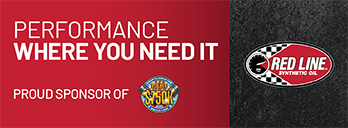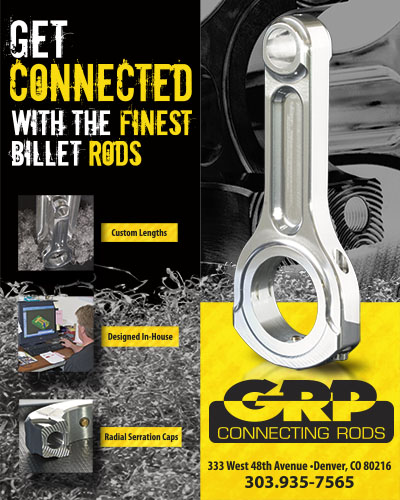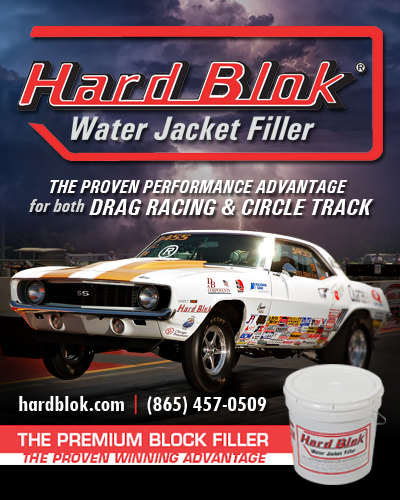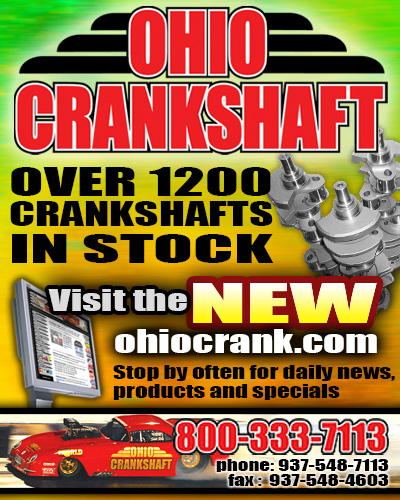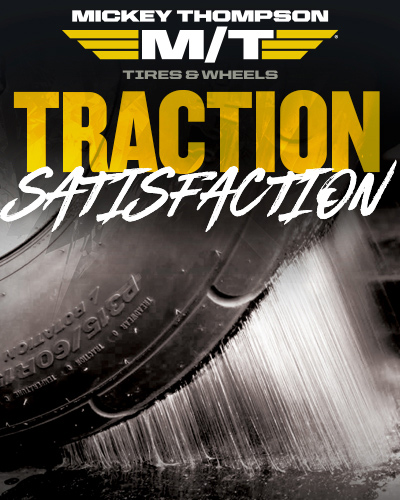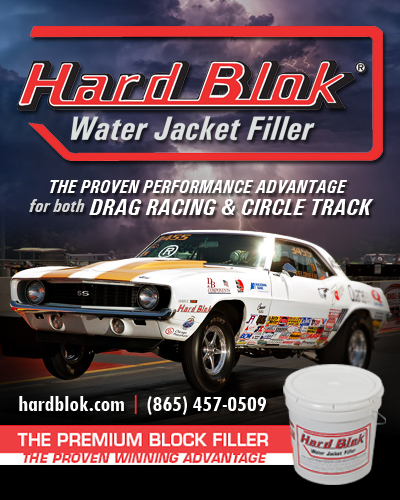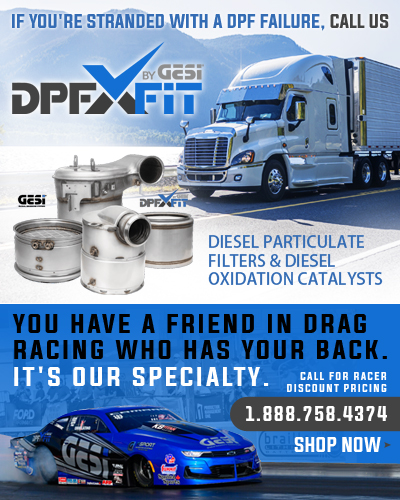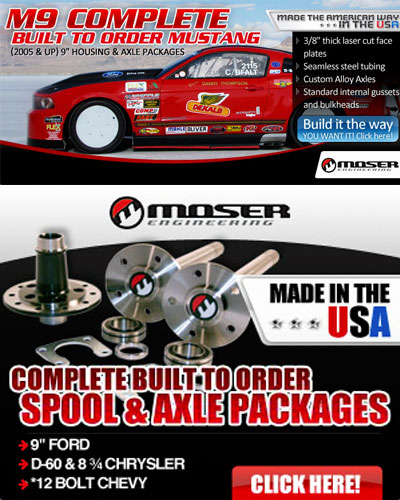SUSAN WADE: DRAG RACING NEEDS A PROMOTER IN A BAD WAY
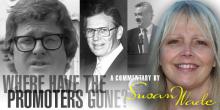 National Speed Sport News Editor Chris Economaki gave a short but profound answer to Michael Knight, host of VoiceAmerica.com's The Race Reporters radio show June 24 on the Internet's Power Up Channel.
National Speed Sport News Editor Chris Economaki gave a short but profound answer to Michael Knight, host of VoiceAmerica.com's The Race Reporters radio show June 24 on the Internet's Power Up Channel.
Knight asked Economaki whether the Indianapolis 500 or the Daytona 500 is America's premier race. Replied Economaki, "The Daytona 500 is important because it is heavily promoted. The Indianapolis 500, unfortunately, is not heavily promoted. It's presented and managed well, but it isn't promoted well. That is the big difference. You have to beat the drums for your event, and the Indianapolis 500 doesn't have a drum-beater."
Neither does drag racing.
Doner? Don King? Vince McMahon?
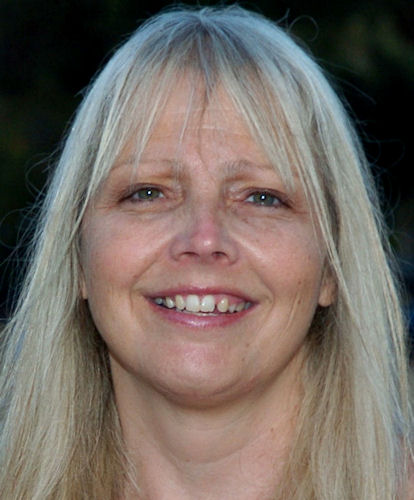 National Speed Sport News Editor Chris Economaki gave a short but profound answer to Michael Knight, host of VoiceAmerica.com's The Race Reporters radio show June 24 on the Internet's Power Up Channel.
National Speed Sport News Editor Chris Economaki gave a short but profound answer to Michael Knight, host of VoiceAmerica.com's The Race Reporters radio show June 24 on the Internet's Power Up Channel.
Knight asked Economaki whether the Indianapolis 500 or the Daytona 500 is America's premier race. Replied Economaki, "The Daytona 500 is important because it is heavily promoted. The Indianapolis 500, unfortunately, is not heavily promoted. It's presented and managed well, but it isn't promoted well. That is the big difference. You have to beat the drums for your event, and the Indianapolis 500 doesn't have a drum-beater."
Neither does drag racing.
Tommy Naccarato, a lifelong drag-racing romanticist and former alcohol- and fuel-car team crew member, had a blunt assessment of the NHRA.
"These people aren't racers or former promoters. Thanks to the (Bill) Doners, the (Steve) Gibbses, (the Steve) Evanses, and the (Mickey) Thompsons, they've inherited and have capitalized on the crowds that filled the Pomonas, Gainesvilles, Englishtowns, Indys, and Maple Groves. They don't understand what OCIR or Lions or Irwindale was on a Saturday night, let alone know how to captivate the audience without choking them and the racers for every last penny."
Naccarato, who contended that "there are a lot of great people in drag racing," said he stands by this post he made on an Internet site not too long ago. "They're business people. It's all 'MBAspeak.' They don't look at things from a racer's standpoint," he said of the NHRA administrators collectively. "They're leaving it for dead. We need a showman."
Drag racing is a business, so understandably it does need to take a business-savvy approach. And it's possible that the NHRA can be run as a business and still preserve the elements that give the racers a sense of the grassroots intentions, somehow an old-time feel with a tech-savvy twist.
But doing that requires something the NHRA has needed for a long time -- that drum-beater that Economaki mentioned.
Here we have America's quickest, fastest, most extreme motorsport but no one out there attracting media attention to tell the story to a nation thirsty for the extreme.
King could orchestrate "The Thrilla in Gainesvilla." He could stage "The Rumble in Reading, "The Beat-Down in E-Town," "The Battle in Seattle," "Malice in Dallas," and "The Fracas in Vegas." He could attract history buffs with "The Seige of Richmond" and "The Burndown of Atlanta."
a d v e r t i s e m e n t
Click to visit our sponsor's website
Former Funny Car driver Dean Skuza -- a man the sport desperately could use right now -- said about a decade ago, "We're not
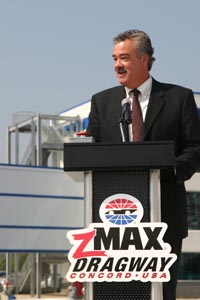
Biking, surfing, snowboarding, skating, martial arts . . . Each is associated with some kind of "X," for extreme. But what about drag racing? When a driver measures fuel in gallons per mile rather than the reverse, when a fuel car launches from the starting line with a pound-per-thrust ratio that compares with the Space Shuttle leaving Cape Canaveral, when a car can produce more than 7,000 horsepower and is the fastest-accelerating vehicle on the planet, wouldn't that be worth the NHRA shouting about?
The sanctioning body has printed a compilation of what it calls "Fun Facts" about the sport. Here are a few:
* One cylinder of the eight cylinders of a Top Fuel dragster or a Funny Car produces 750 horsepower, equaling the entire horsepower output of a NASCAR engine.
* An NHRA Funny Car is slowed by a reverse force more than seven times that of gravity when both parachutes deploy simultaneously.
* A fuel pump for an NHRA Top Fuel dragster and Funny Car delivers 65 gallons of fuel per minute, equivalent to eight bathroom showers running at the same time.
Those are distinctions worth publicizing. Those are hooks. Those might make someone curious to see your product.
"Well, as you just said, we published that list," might come the reply from sanctioning-body headquarters at Glendora, Calif. Well, one of Knight's mantras as one of the most experienced public-relations experts is "Don't be afraid to repeat your message. Don't say it just once. Say it over and over and over and over until it sinks into America's consciousness."
That's some free advice for the NHRA, something it didn't have to pay some outside consultant or some fancy-schmantzy advertising firm to get.
The fact is that NHRA President Tom Compton is a genuinely cordial man. He loves his family and even has coached youth basketball games. The fact also is that he is rather shy and clearly more than a bit uncomfortable at a microphone. That's nothing to be ashamed of -- everybody has a particular skill to contribute. What Compton brings to the NHRA is an education and experience in finance. But finance is not friendliness. Finance keeps track of dollars but not of souls.
"The NHRA President" should be visible. He should be strolling through the media center at each race and greeting each media member who attends the event. He should be walking through the pits, stopping at each team's operation and chatting with them. He should know their names -- all of them, not just Force, Schumacher and Prudhomme. He should be willing to shake the hands of fans and say, "Thank you for coming today! Enjoy yourselves!" He should be willing to listen to anyone who wants to visit with him for a reasonable amount of time as he's walking around the racetracks.
a d v e r t i s e m e n t
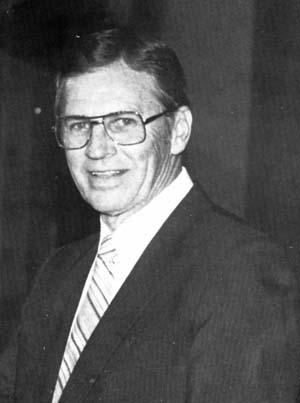
In fairness, though, Compton needs some reinforcements. Make him the Executive President, and give him a Social President to complement himself. Make up any title that sounds proper -- but give him some help. Take an uncomfortable burden from his shoulders.
Who could fill the bill?
The first person who leaps to mind is Humpy Wheeler, the promoter extraordinaire who vaulted Lowe's Motor Speedway to prominence. Wheeler not only introduced a number of safety and luxury marvels to NASCAR, but he also had current-event-related stunts and outlandish (and outlandishly memorable) promotions. People still talk about his "all-you-can-eat" grandstand section and his Johnny-Carson's-Carnac-The Magnificent -like predictions. Once he re-enacted the Battle of Grenada and against a circus backdrop, sent out a fire-breathing, car-eating Robosaurus.
NASCAR executive Jim Hunter said Wheeler was the master of keeping his track in the news on a slow-or-no-news day. "Humpy was a step out of the box. There'll never be another Humpy Wheeler," Hunter told ESPN's David Newton. "Humpy always got up in the morning running, thinking of ways he can promote Lowe's Motor Speedway."
NHRA has no one like that.
Drag racing had Larry Carrier, the late founder of the International Hot Rod Association. A strong-willed, plain-spoken East Tennessee businessman, Carrier knew how to put on a good show and didn't take any backtalk from anybody, including sponsor Winston. He once told Winston's Ralph Seagraves in a disagreement, "You remember when we started this thing, how you said you'd never tell me how to run a sanctioning body and I, in turn, promised that I'd never get into the cigarette business? Well, I still haven't made my first cigarette yet."
Visionary Vinny Napp, the driving force behind the Englishtown track and father of Junior Dragster racing, is no longer living, either.
But we have several other candidates.
a d v e r t i s e m e n t
Click to visit our sponsor's website
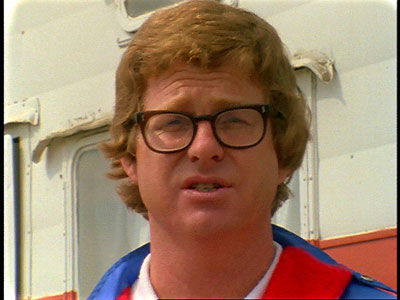
But Rockstad, knowing Doner has been away from the action for awhile, gave Bill Bader Sr. his vote. The owner of Summit Racing Equipment Motorsports Park at Norwalk, Ohio, and former owner of the IHRA stages a $100,000 fireworks show at his national events and his annual Night Under Fire program and sells ice cream for $1 per pound. He's not afraid to cross traditional lines -- when he owned the IHRA, he frequently booked in NHRA stars to his track.
Said Rockstad, "Bill Bader Sr. needs to run the NHRA, as his family is the smartest in the sport." He said the Norwalk national event has drawn the best crowd of this economically troubled year because of "their efforts and understanding of the sport."
Why look within the sport for a high-octane promoter?
ESPN football analyst Lee Corso would inject some fun and excitement. After all, when he was coaching football at Indiana University (where gridiron glory days were a quick flash in the Rose Bowl against USC and senior Heisman winner O.J. Simpson), he called an unusual time out. In 1976, the Hoosiers had just taken their first lead over Ohio State in 25 years, and Corso wanted to have his team's picture taken in front of the scoreboard.
The Buckeyes won that game, 47-7, perpetuating the headline from The Indianapolis Star: "Hoosiers losers more so with Corso." But no football coach kept the attention on the program as much as Corso. Every football coach has a TV show, and Corso livened his up once by crawling from a coffin. The message was that his team wasn't dead yet. "Ever been in a coffin? It's soft," he said. When the team was 2-9, he received an anonymous holiday fruitcake. He wouldn't touch it, saying, "When you're 2-9, you don't eat an unsigned fruitcake."
But walk into his office back then and the first thing he would ask, with a twinkle in his eye, was "Know who my roommate was at Florida State? Burt Reynolds! Really!" (Reynolds said that nobody was funnier than Corso, especially in the huddles.) Then he'd whip open a desk drawer that was chock-full of chocolate-chip cookies. "Got to have one!" he'd insist.
Before that, when he coached at the University of Louisville, he rode an elephant in a parade to drum up support for the ticket-sales drive. It resulted in four ticket sales and a pulled groin, but he tried. And in 2001, Corso spearheaded an effort to develop a crayon made from soybeans. He's always thinking -- and the NHRA could use that.
Here's another candidate for the NHRA: Vince McMahon. Someone in the Pacific Raceways pits remarked at the recent Northwest Nationals, "What the NHRA needs is a good fistfight at the top end of the track." And who better to exploit that but McMahon, the chairman of the World Wrestling Entertainment (WWE)?
No one at Glendora ever has come up with McMahon's wildest stunt (at least not publicly) -- the "Kiss My Ass Club." McMahon did it, though -- ordered WWE individuals to kiss his rear end in the middle of the ring, often threatening to suspend or fire them if they refused to do it. And guess what -- McMahon's shows fill the arenas, even with school children. Moreover, McMahon is successful enough to gain Donald Trump's partnership. No one does that without being a money magnet.
So bring on McMahon for a Nitro Smackdown. Jerry Toliver and Jim Epler can form a tag team again, like they did in the early 2000s with their Rock and Stone Cold Funny Cars. Fox Hunts would be back in style. The Sunday-morning broadcast would be "NHRA Raw." It's entertainment, baby! Maybe this way the NHRA could afford to be like NASCAR, with purses so large that even the middle-of-the-pack finishers could receive at least $1 million at the year-end awards ceremony.
Is McMahon a little over-the-top? Well, OK . . . If the NHRA can overlook a murder conviction way back when, then how about Don King? His finger-in-the-wall-socket hairdo is only one trait that distinguishes him -- he's a flamboyant promoter. Remember his 1975 heavyweight title bout between Muhammad Ali and Joe Frazier, "The Thrilla in Manilla"?
King could orchestrate "The Thrilla in Gainesvilla." He could stage "The Rumble in Reading, "The Beat-Down in E-Town," "The Battle in Seattle," "Malice in Dallas," and "The Fracas in Vegas." He could attract history buffs with "The Seige of Richmond" and "The Burndown of Atlanta."
Those might not be appropriate choices, but in all seriousness, the NHRA has a problem. It needs a drum-beater. Doner's friends joke that his motto was "No problem is too big to run away from." Let's hope the NHRA hasn't adopted it.
| {loadposition feedback} |

